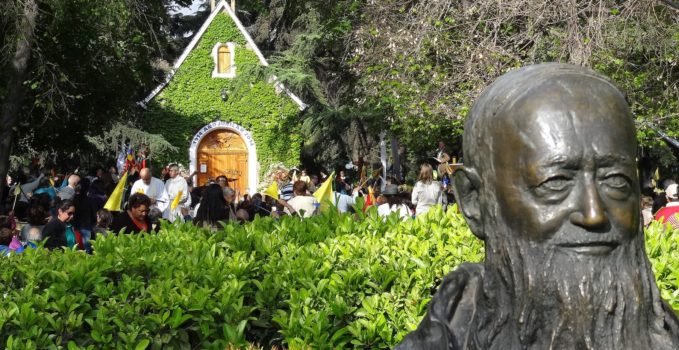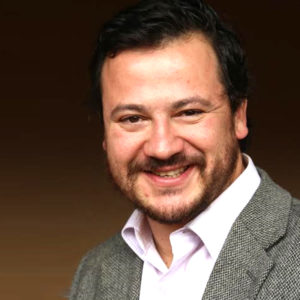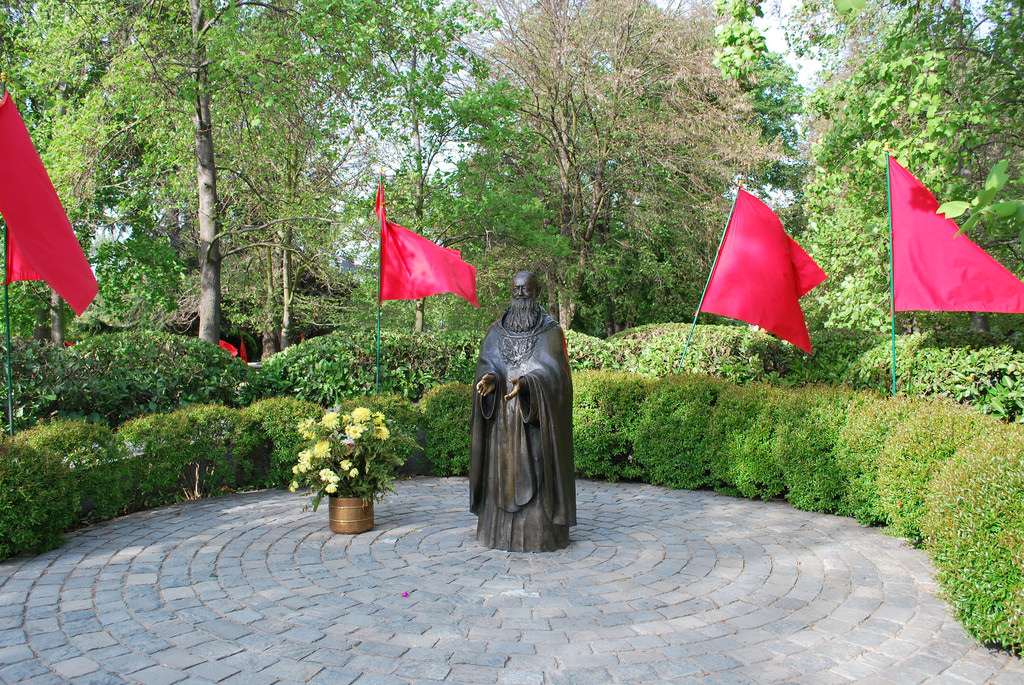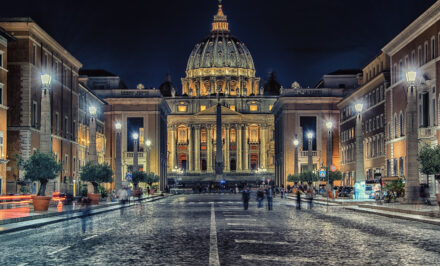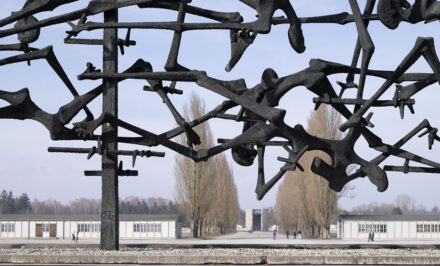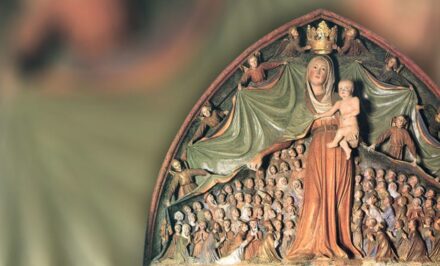Ignacio Serrano del Pozo, Chile •
I wrote this column with regard to the commemoration of May 31st in which I intend to read this Schoenstatt milestone in the context of the Church’s crisis.—
Time of commemoration and reflection
This next May 31st, the Schoenstatt Movement will celebrate the 70th anniversary of the mission Father Joseph Kentenich entrusted to us in the Bellavista Shrine: a crusade for thinking, living, loving organically, or the perfect restoration of the natural and supernatural organism of attachments in its most classic formulations.
As well as being an occasion to commemorate, it seems to me that it is also a very good opportunity to reflect, that is to say, to rethink the ideas contained in this new outpouring of graces. Well it often happens if you listen so much to certain phrases; they lose their meaning or impact power. To use an analogy, it is like what happens when a flight attendant explains and demonstrates the safety instructions and procedures on an airplane each time we begin a flight: if we are all in agreement that it has to do with important questions – being that we have head them so many times – we hear them but without paying due attention
Time of crisis
Rethinking the message of the Father and Founder as a charismatic proposal takes on a special meaning today –at a time marked by situations of abuse of power and crisis of trust within the Church and also within the Schoenstatt Family, since it demands that we examine whether the mission of the 31st of May is also a valid response for this Church that sinuously advances toward the other shore. If in past decades, an incomplete or superficial reading of the key texts of the Third Milestone could be considered only as historical ignorance, and the mantra-like repetition of those categories here contained as sufficient knowledge— but that is impossible after what we have experienced as a worldwide and Chilean Church.
Moreover, if in this time of crisis we do not strive to reach a renewed understanding and assimilation of May 31, the gravity and urgency of it will push us to reach for the first lifesaver that comes along, whether this be lay synodality, demystification of the clergy, transcendental meditation, or anything else, regardless of whether or not these strategies respond to our charism.
Fidelity to the mission
In what follows, I do not pretend, of course, to offer “recipes for a solution” to the crisis. Such an objective would be disproportionate. Better yet, I am interested in paying attention on three concrete questions contained precisely in the Bellavista Mission, which should not be forgotten upon beginning the road to healing in the Schoenstatt way, precisely in loyalty to whom “in divine power” risked it all for preaching his prophetic message.
The importance of contact
The current crisis of abuse and mistrust confronts us with a decisive question: are we going to continue opting for promoting our strategy of natural attachments as a form for us to encounter God? The immense rage and disappointment caused by the abusive actions of real individuals, priests, and consecrated bishops, provoke an immense temptation: to detach oneself a bit from creatures in search of a “more profound” religion, from the inner-self or immediate contact with God. It is a powerful temptation, since – using the metaphor from above – it does not stop from resulting in the attractive option to grab the oxygen mask and lifeboat to save oneself only and quickly.
Nevertheless it seems to us since our first impression, there is no possibility of avoiding affective and effective contact with other human lives. First of all, because for us it is at the heart of the Gospel: “Those who say, ‘I love God’, and hate their brothers or sisters, are liars; for those who do not love a brother or sister whom they have seen, cannot love God whom they have not seen.” (1 John 4:20). But also, secondly, because Pope Francis himself warned us of the danger of a stark religion at the service of a certain individual experience or a series of subjective reasoning. “God supersedes us infinitely, it is always a surprise and it is not we who decide in which historical circumstance we find it […] Neither can one pretend to define where God is not because He is mysteriously in the life of each person […] Even when someone’s existence has been a disaster, even when we see him destroyed by vices or addictions, God is in his life.” (Gaudete et Exultate, 41,41)
As for the rest, this demand for radical human attachments, so deep that they begin on this earth and do not end even in Heaven itself (“Whoever has reached our heart has done it to stay”), lastly finds himself in the center of the words which Father Kentenich pronounced within the Bellavista Shrine: “We want to remain faithful to each other – in one another, with one another, and for one another in the heart of God. If we would not find each other there, how terrible that would be! Do not think that because we are going to God we are departing from each other. I do not want to be just a signpost. No, we are going this way together! That will be true through all eternity!” (The Talk of the 31st of May 1949)
Rejection of essential (fundamental) minimalists
The living crisis pushes us towards a second position heard frequently in Catholic circles; that of only going to the essential (fundamental), avoiding what appears to be on the outskirts. Thus it would be about turning to Christ and the nakedness of his word, without remaining entrapped in his messengers or in the channels that transmit his message. The point is, perhaps, this attitude justifies our spirituality, and if it would not end – better still – leaving out as accessories many of our most treasured treasures: the pedagogy of the personal ideal and its asceticism, the work and formation communities, the Shrine itself as a concrete place of graces, and the Blessed Virgin Mary as Mother and Educator. As for the rest, was it not this essential temptation Joseph Kentenich himself perceived in the 1930’s in the interior of the liturgical circles and the German Bible Movement? Even there he discovered the germ of the so-called bacillus of mechanism, since “its separatist spirit rips up the ideas of life making those circles incapable of granting a deep Marian devotion, the place which corresponds to it in the full development of Catholic life.” (Letter to Joseph, 1952)
It is also true that this crisis pushes us towards getting rid of many attitudes and structures that may well be a burden that only provides false assurances. But if we want to save ourselves, we can throw away many things that at the moment of an accident lose their relevance and among them are things that no longer can be the same lifeboats.
Affirmation of the father principle
But – thirdly – and perhaps the most dramatically, is the reality of present abuses of power put into question the very same principle of authority since its dismantling or beheading seems to be the only alternative capable of restoring a new Church, more horizontal, more fraternal and less abusive.
The question is that if with it are we not eliminating with one stroke of the pen the principle most central to the May 31st letter: the practical consideration is that human authority is transparent and representative of God the Father. Undoubtedly, this is the most difficult part of the mission to accept that the Founder of Schoenstatt pronounced 70 years ago. In fact, I would dare to say that the present crisis allows solidarity – very well – with the canonical visitor, Bishop Bernard Stein. If we analyze it quickly, we would have to say that this man – who earlier could be seen as the incomprehensible villain, in reality did nothing else than to warn Fr. Kentenich of the risks that a fascinating authority could impose on his followers, “to the point of demanding for himself the place of God.”
But here the fundamental question reappears: Is the real life crisis, consisting of the weaknesses and sins of those who have made some form of power for themselves capable of making us destroy one of the core principles contained in Schoenstatt’s message? Undoubtedly, on this topic there is a great deal of fabric to cut: we should pause here on what authority means in the Kentenich perspective (“author of life,” “service at another’s originality”), how to always see it in the light of faith and how to build determined securities to moderate and limit its power (“not to impose demands which the authority does not aspire to fulfill, “to obey in everything which is not a sin,” “ to encourage respectful frankness,” “to intervene only when it seems opportune or necessary,” among others); but that in no way obscures that May 31st is a wager for more paternal authority and more childlike attachment, no less. There is what Father Kentenich himself pointed out in the last years of his earthly life: “Love for a transparency of God is, for the most part, a sure means and expression of love for the Heavenly Father. Thus we should also understand our reciprocal relationship. Here you have the great constant. It is not about the idolatry of a person.” (Conference for the members of the Institute of the Ladies of Schoenstatt, 1966)
So – are we ready then to run the risk of affirming the principle of authority on the natural level in spite of the past? As Kentenich’s children, it seems there is no other alternative. It is the risk of the permanent tensions warned in the same Epistola Perlonga deposited in the Bellavista Cenacle Shrine.
If the airplane crashes, surely we are going to want to blame the entire crew for what happened, but we cannot forget that it is precisely this conveyance that allows us to take flight. In the same vein, it should be said that a strong authority can certainly end up replacing the conscience and destroying freedom, and the recent examples are obvious. However, this cannot overshadow the fact that its essence and mission are different: to empower, to welcome the interests of the community, to foster the initiative of others, to grow in thinking capacity and responsibility; and – above all – to re-bind ourselves to the same Father God through his presence and action.
Father Kentenich cites the words of Pius XI in his mythical letter: “I am happy to live in the 20th Century; I think that in the 20th Century it is impossible for the Christian to be mediocre.” We could paraphrase this expression to say today: “I am happy to live in this crisis occurring 70 years after May 31st, since because it is impossible to be a mediocre Schoenstatter.”
About the author:
A Schoenstatter: Doctor in Philosophy from the University of Navarra, Professor of Philosophy from Adolfo Ibáñez University, Fondecyt and Becario Conicyt researcher. In the area of formation in school and superior education, he has carried out the task as director, a specialist on topics of moral education and ethics formation. Area of expertise: Ethics fundamentals, contemporaneous anthropological problems, social doctrine of the Church, and Thomas Aquinas.
Original Spanish: February 2, 2019. Translation: Carlos Cantú, Austin, Texas USA. Edited: Melissa Peña-Janknegt, Elgin, TX USA


